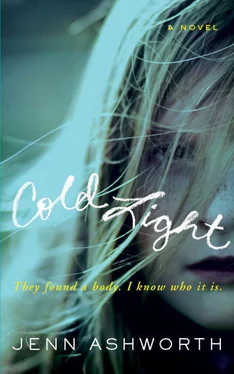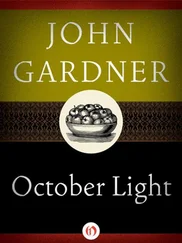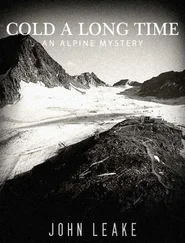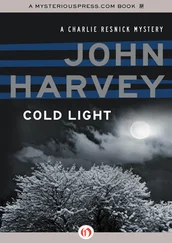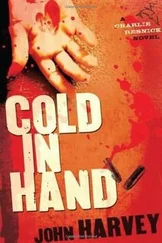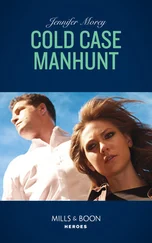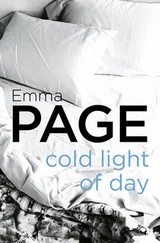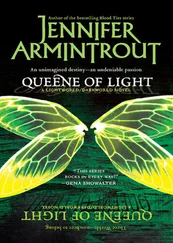Between interviews, they make us wait upstairs in a classroom. We’re left alone but we’re aware that in a nearby office we are being discussed. Teachers; her parents and mine; the nurse; social workers. And the pair of us with nothing to do but stare out of the windows at the bedlam occurring at the front of the school and wait.
We watch the cars arrive and unload. We lean on the sill, making palm prints in the dust. Emma rests her muscly thighs against the radiator. I pull leaves from a brown spider plant and we both look out of the window and say nothing. We listen. The glass muffles the crying and singing but we can still see the flowers and feel the atmosphere, which is shrieky and curious and raw.
These people who we don’t know – who Chloe doesn’t know – even turn up at the school in coaches. Every single one of them brings something. If it’s not roses and baskets of silk flowers then it’s stuffed bears and huge, handmade cards. So many ways of spelling her name.
They interview us alone, then together, then alone again. Because we’re only fourteen, we’re entitled to breaks. We don’t discuss the questions we’ve been asked. We don’t compare stories. I never know what Emma is going to say until she comes out and says it.
‘They’re putting candles out now,’ she says blandly.
She nods towards a kneeling figure across the road from the school. He is pulling something out of a carrier bag, laying it out on the pavement. A bank of tea-lights blooms as quick as mushrooms to drip and sputter in the shelter where the school buses pick up. Emma leans forward, putting all her weight on her hands. Her breath makes clouds on the glass. Her school jumper smells like old towels.
I stare at the flickering candles and remember the time me and Chloe waited there in the rain on a day we were supposed to be at school.
‘The wind’ll blow them out,’ I say. Emma nods and we wait, no one breaking the silence until Shanks comes back with another pair of police officers.
‘What is it now?’ I say, but not loud enough for Shanks to hear.
The police bring us cans of Coke and put their hands on our shoulders. Smile a lot, just to let us know that we aren’t in trouble and we shouldn’t be afraid of speaking out – of saying everything we knew about Chloe and her boyfriend. Sometimes they film us as we talk and make our parents sign pieces of paper afterwards to say it’s all right, that they don’t mind. I wonder if the cameras will be out this time, and what they’ll do with the recording, and if we’ll end up on the television again. Sometimes there are journalists waiting for us after school. They’ve promised to make special arrangements.
‘Right then,’ Shanks says, and I notice he’s taken the pack of fags out of his breast pocket, and that today he’s wearing a proper shirt and not a denim one.
‘They just want another five minutes with each of you, one at a time, and then you can go back to classes.’ He smiles, tries a joke, ‘No getting out of Maths today, I’m afraid, girls. Who’s first?’
Emma and I don’t look at each other. She steps forward. I see her ponytail bob from side to side against her neck. I don’t wonder what she is going to tell them. Shanks takes her away and I turn back to my window. Another coach has arrived.
They’re showing it this afternoon. A ceremony to mark the first spadeful of earth, and when it’s built, a ceremony to open the thing, I bet. I bring a bag of Doritos and a box of wine with me to the couch. Close the curtains, find the remote and settle in. The screen crackles with static as it warms up and I wonder, uneasily, what Emma is doing with herself tonight.
Beginning of this January, the council got together with the school and Chloe’s parents and set up a memorial fund. There was a consultation and a vote at a meeting in the Empire Services Club. The crowd was so big it overflowed the bar and spilled onto the bowling green. Someone came round with a tray of tea in those beige plastic cups with the plastic frame holders you get to stop you squeezing too hard and covering yourself in boiling liquid. We voted, all together, for a memory. A memorial. A house. The upshot of it is the City has decided to build a summerhouse overlooking the banks of her pond.
It’s not a pond and it’s not hers. It’s a concrete-bottomed pool, man-made and deeper than it looks. The yeast in the bread thrown to the ducks has polluted the water so there are no fish and no reeds – it’s a dead, black disc surrounded by a tangle of grey and leafless trees and hawthorn: their branches are decorated with torn carrier bags and faded crisp packets.
It’s not a place where anyone, least of all Chloe’s parents, would want to sit and rest a while , as it will say on the bench. But the City has decided. The council is putting up the money. Terry did the publicity and the telethon appeal for donations, and because the wood was the place were Chloe and Carl used to go – for their privacy – the summerhouse, decorated with stone doves and plaster cupids, surrounded by trellis and its own decking tracing a walkway down to the dirty banks of the pond, was what they planned.
They’ve built a model which the camera in the studio zooms in on so that on the television it looks like the real thing. This summerhouse (a concrete folly) is half a monument to young love gone wrong and half a nice piece of publicity for the City’s urban renewal programme: deprived areas, community cohesion – something for the teenagers to smoke their glue in. It’s morbid and sentimental, it ticks all the right boxes for community enterprise funding, and now it’s on The City Today .
This February has been wet and mild so the soil is easy to turn. The location camera shows the mayor attacking the cleared patch with a spade decked out like a maypole in pink and white ribbon. Chloe’s parents, because of their guilt, wanted the memorial to be a celebration of love and life and St Valentine and as a concession to this the City has provided the ribbons for the spade and the pink and white balloons – gratis . The mayor isn’t paying attention when he sinks the spade in but smiling at the pop of a few flashing cameras.
When the earth opens there’s nothing to see but some plastic – thicker than ordinary bin-bags, but nothing like tarpaulin. The blade of the spade tears open the plastic and a corner of it catches underneath. Even then, it’s nothing spectacular. Nothing, that is, we watching at home can see . No spectacle apart from a dirty fold of fabric that comes up with the soil as the mayor leans back and jiggles the spade so that the blade turns up the first clod. It could be anything – the cover from a pram, an old shower curtain, the material from an umbrella.
In fact, it’s a blue North Face jacket – waterproof and indestructible.
Terry peers into the hole, smiles, and then leans into the camera. The black bulb of the microphone is at his mouth. He says something, but I’m watching the weather girl who is standing next to him. She’s holding a white candle in one hand and a pink balloon in the other. They must have used helium – the string is straight up like a plumb line and the balloon floats over her head like an idea. Her smile freezes, then fades. Terry is still talking but the people behind him are screwing up their faces and coughing.
It’s the smell.
When the mayor heaves the spade backwards again, straining the row of buttons that bisects his belly, there’s an audible groan of disgust from the crowd and the weather girl lets go of her balloon, leans to the side and vomits a clear string of bile onto the ground. I watch the balloon float upwards, out of camera shot.
Читать дальше
